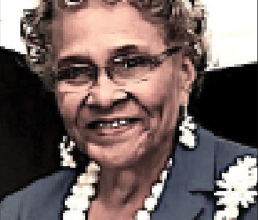The Public Affairs Research Council of Louisiana urged Jindal and lawmakers to do more detailed analysis about the costs and benefits of an expansion before choosing to reject billions of dollars in federal health care money.
“The hundreds of thousands of Louisianans who do not have health insurance deserve a comprehensive examination of the expansion option. Also, Louisiana taxpayers deserve an accurate analysis of the estimated costs and benefits,” the nonpartisan group wrote in a new report co-authored by former state Medicaid Director Don Gregory.
Jindal opposes the Medicaid expansion allowed under the federal health law, calling it inappropriate growth of an inefficient and poorly managed government health program.
Estimates are that up to 400,000 more Louisiana residents could be eligible for Medicaid in 2014 and thereafter if the state chose to expand the program, with the federal government paying most of the costs.
Despite the federal funding, Jindal said the expansion would be too costly for states. He said insurance is better handled by private companies and states should be free to design health programs that suit their individual needs.
“We made the decision to not expand, so we’re not putting a great deal of time in what-ifs,” said Department of Health and Hospitals Secretary Bruce Greenstein, a Jindal appointee.
Greenstein said the governor’s decision is based on analysis from 2010, and he said letters sent to the Obama administration requesting more flexibility on using the health care funding have gone unanswered.
PAR said existing analyses of the financial impact of a Medicaid expansion in Louisiana have been limited.
The organization said a decision on an expansion of the state’s Medicaid program should look at the potential impacts to health outcomes, private businesses, employer-sponsored health insurance programs, the private insurance market and Louisiana’s bond rating.
Lawmakers, who have not taken a vote on the Medicaid expansion, will discuss the pros and cons of the idea at a committee hearing Wednesday. PAR suggests the Legislature should “assert its authority” in deciding whether to expand.
Greenstein has said the state’s 2010 analysis, done by an outside consulting firm, didn’t include modeling about whether savings on uninsured care currently paid by the state could help offset the state’s costs of a Medicaid expansion. Also, Jindal no longer even cites the expansion cost estimate from the state’s research.
But Greenstein said federal officials have provided little guidance about the regulations since the state’s last analysis of the health care law to prompt further study.
“Much of the research is difficult to do beyond what we’ve done,” he said.
If Jindal continues to reject an expansion and the money provided by the federal government, the governor should explain his alternate plan for providing health care coverage to the uninsured in Louisiana — and lawmakers should help shape that plan, PAR wrote.
Democrats accuse Jindal of refusing the Medicaid expansion because of national political aspirations. The GOP governor is considered a possible White House contender in 2016.
The potential Medicaid expansion would cover adults making up to 138 percent of the poverty level — $15,420 a year for an individual or $31,812 for a family of four.
The federal government will cover the full costs of the Medicaid expansion from 2014 to 2016 and pick up most of the price tag after that, requiring states to pay up to 10 percent.
The nonpartisan Kaiser Family Foundation estimates it would cost Louisiana $1.2 billion over 10 years to expand the program to cover the additional low-income residents in exchange for $15.8 billion in federal funding.
The left-leaning Louisiana Budget Project said the state wouldn’t have to put up that additional cash, however, calling it a break-even proposition because Louisiana would save a similar amount that it would otherwise spend on uninsured care over the same decade.
Online: www.parlouisiana.com/s3web/1002087/docs/aca-eligibility-expansion-web-version.pdf (MGNonline)





